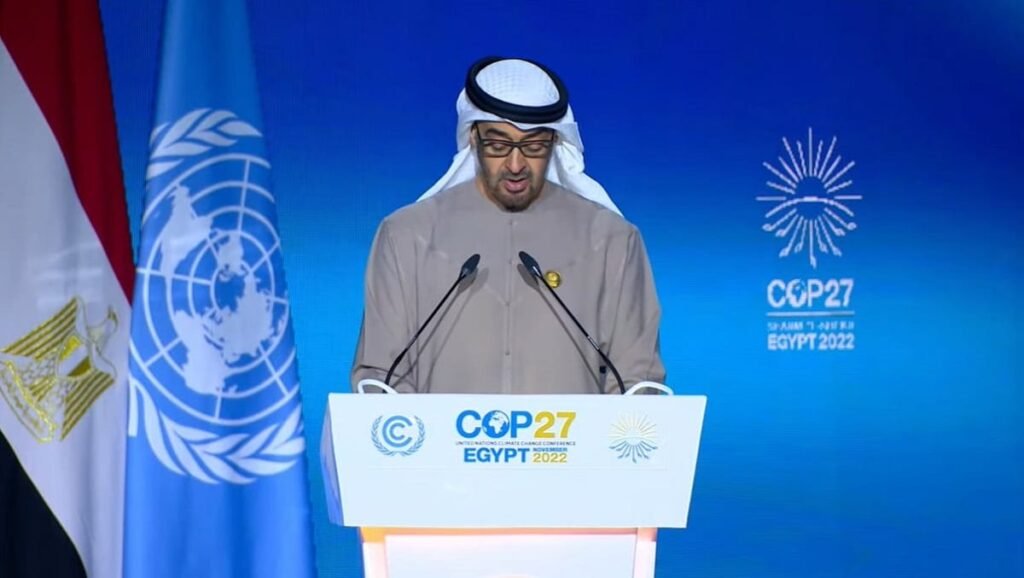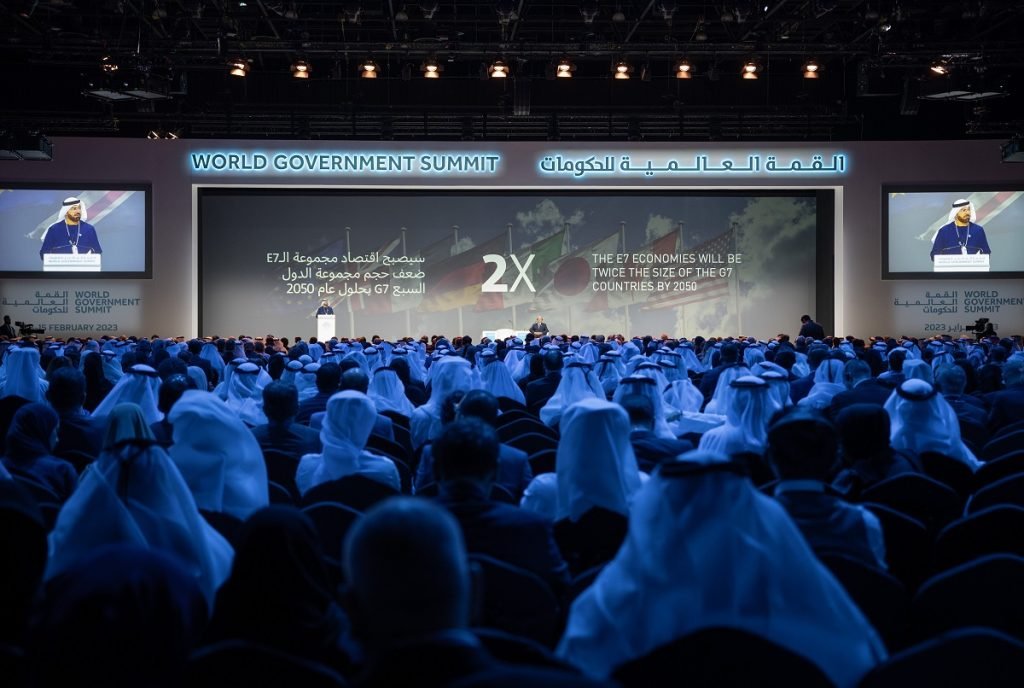As the world faces increasingly severe environmental challenges, countries around the globe are intensifying their efforts to combat climate change. One country that is making significant strides in this area is the United Arab Emirates (UAE). The UAE has emerged as a key player in global climate change negotiations, showing strong leadership through both domestic policies and international cooperation.
The UAE’s commitment to sustainability and climate action reflects its vision of a greener, more sustainable future for the region and the world. The country is not only working to reduce its own carbon footprint but also taking an active role in shaping global climate change policies. Let’s take a closer look at the UAE’s role in global climate change negotiations and how it is contributing to efforts to protect the planet.

UAE’s Leadership in Global Climate Change Talks
The UAE has demonstrated a proactive stance in global climate change negotiations by actively participating in key international agreements, such as the United Nations Framework Convention on Climate Change (UNFCCC) and the Paris Agreement. In these negotiations, the UAE has worked alongside other nations to set ambitious targets for reducing greenhouse gas emissions and limiting global warming.

In particular, the UAE has played a significant role in supporting the Paris Agreement, a landmark international treaty signed in 2015 that aims to limit global temperature rise to well below 2°C above pre-industrial levels. The agreement encourages countries to take action to reduce their emissions and promote sustainable development.
As part of its commitment to the Paris Agreement, the UAE has set ambitious goals for reducing its own carbon emissions, with plans to achieve net-zero emissions by 2050. This pledge is a significant step forward for the UAE, which has traditionally been an oil-producing nation, as it looks to diversify its energy sources and transition to a greener, low-carbon economy.

Hosting COP28: A Major Milestone for the UAE
One of the most notable events in the UAE’s climate leadership was its hosting of COP28, the 28th Conference of the Parties to the UNFCCC, in 2023. The COP28 conference brought together global leaders, environmental experts, and representatives from various countries to discuss urgent climate issues and set concrete actions to address them.
As the host country, the UAE took on a leadership role, facilitating discussions on critical climate topics such as renewable energy, carbon pricing, and climate financing. COP28 was an opportunity for the UAE to showcase its commitment to sustainable development, highlight its achievements in renewable energy, and push for more ambitious global climate action.
The UAE’s role as the host country for COP28 was a testament to its growing influence in international climate negotiations. It provided a platform for world leaders to come together and address pressing environmental concerns, while also highlighting the UAE’s dedication to finding practical solutions to combat climate change.
Investments in Renewable Energy and Clean Technologies
The UAE’s leadership in global climate change negotiations is backed by its investments in renewable energy and clean technologies. The country has made substantial progress in diversifying its energy mix and reducing its dependence on fossil fuels. In particular, the UAE has focused on expanding its solar energy capacity, taking advantage of its sunny climate to generate clean power.
One of the UAE’s flagship projects in renewable energy is the Mohammed bin Rashid Al Maktoum Solar Park in Dubai, one of the world’s largest solar power plants. The park is a symbol of the country’s commitment to clean energy, with plans to generate up to 5,000 megawatts of solar power by 2030. This initiative is part of Dubai’s Clean Energy Strategy 2050, which aims to produce 75% of the city’s energy from renewable sources by 2050.
The UAE has also made investments in other clean energy projects, such as nuclear power and waste-to-energy technologies, all of which contribute to reducing carbon emissions. The country’s focus on sustainable energy not only helps reduce its own environmental impact but also serves as a model for other nations in the region.
By investing in renewable energy and clean technologies, the UAE is demonstrating its commitment to addressing climate change while also contributing to global efforts to reduce greenhouse gas emissions.
Climate Finance and Global Partnerships
In addition to its own efforts to reduce emissions, the UAE has been actively involved in climate finance, which is critical for supporting climate action in developing countries. Climate finance involves providing financial resources to help vulnerable nations mitigate and adapt to the impacts of climate change.
The UAE has pledged significant funds to support climate change adaptation and mitigation efforts in developing countries, particularly in regions that are most vulnerable to the impacts of climate change, such as small island nations and African countries. Through initiatives like the UAE Green Fund, the country is helping to finance projects that promote renewable energy, energy efficiency, and climate-resilient infrastructure in these regions.
The UAE has also forged global partnerships with other countries, international organizations, and the private sector to support climate action. For example, the UAE is a member of the International Renewable Energy Agency (IRENA), an organization that promotes the use of renewable energy worldwide. Through these partnerships, the UAE is contributing to the development of global solutions to the climate crisis.
The UAE’s Vision for a Sustainable Future
The UAE’s role in global climate change negotiations is driven by its broader vision for a sustainable future. In recent years, the UAE has increasingly focused on sustainable development, making it a central part of its long-term economic and environmental strategy. This includes transitioning to clean energy, improving energy efficiency, and fostering green industries.
The UAE’s commitment to sustainability is evident in its national policies and initiatives, such as the National Climate Change Plan and the UAE Energy Strategy 2050. These plans outline the country’s objectives for reducing carbon emissions, increasing renewable energy production, and building a more sustainable economy.
In addition to its domestic efforts, the UAE is actively engaging in global climate diplomacy to encourage other countries to step up their climate action. By sharing its experiences and best practices, the UAE is helping to shape the future of climate policy and drive global efforts to combat climate change.
Challenges and Opportunities Ahead
While the UAE has made significant progress in its climate efforts, challenges remain. One of the key challenges is the need to balance economic growth with environmental sustainability. As a major oil producer, the UAE faces the complex task of diversifying its economy while reducing its reliance on fossil fuels. However, the country is making strides in transitioning to a more sustainable energy mix, with growing investments in renewables and clean technologies.
Another challenge is ensuring that climate change action is equitable and inclusive, particularly for vulnerable populations in developing countries. The UAE’s efforts to support climate finance and global partnerships are critical in addressing these challenges and ensuring that all nations have the resources they need to tackle climate change.
Despite these challenges, the UAE’s leadership in global climate change negotiations presents a significant opportunity for the country to be at the forefront of efforts to build a more sustainable and resilient world. Through its investments in renewable energy, climate finance, and international partnerships, the UAE is playing a pivotal role in shaping the future of climate action.
Conclusion
The UAE’s role in global climate change negotiations reflects its commitment to sustainability and its growing influence on the world stage. By investing in renewable energy, hosting major climate conferences like COP28, and supporting climate finance for developing countries, the UAE is making important contributions to the global fight against climate change.
As the world faces increasing environmental challenges, the UAE’s leadership and active participation in climate discussions are critical in driving global climate action. With its focus on sustainable development and its commitment to reducing emissions, the UAE is setting an example for other countries to follow as the world works together to combat climate change and secure a sustainable future for generations to come.
Also read: How the UAE is Leading the Charge in Artificial Intelligence Innovation












